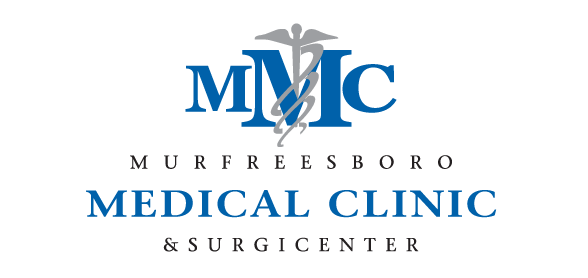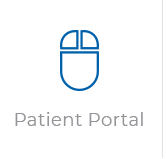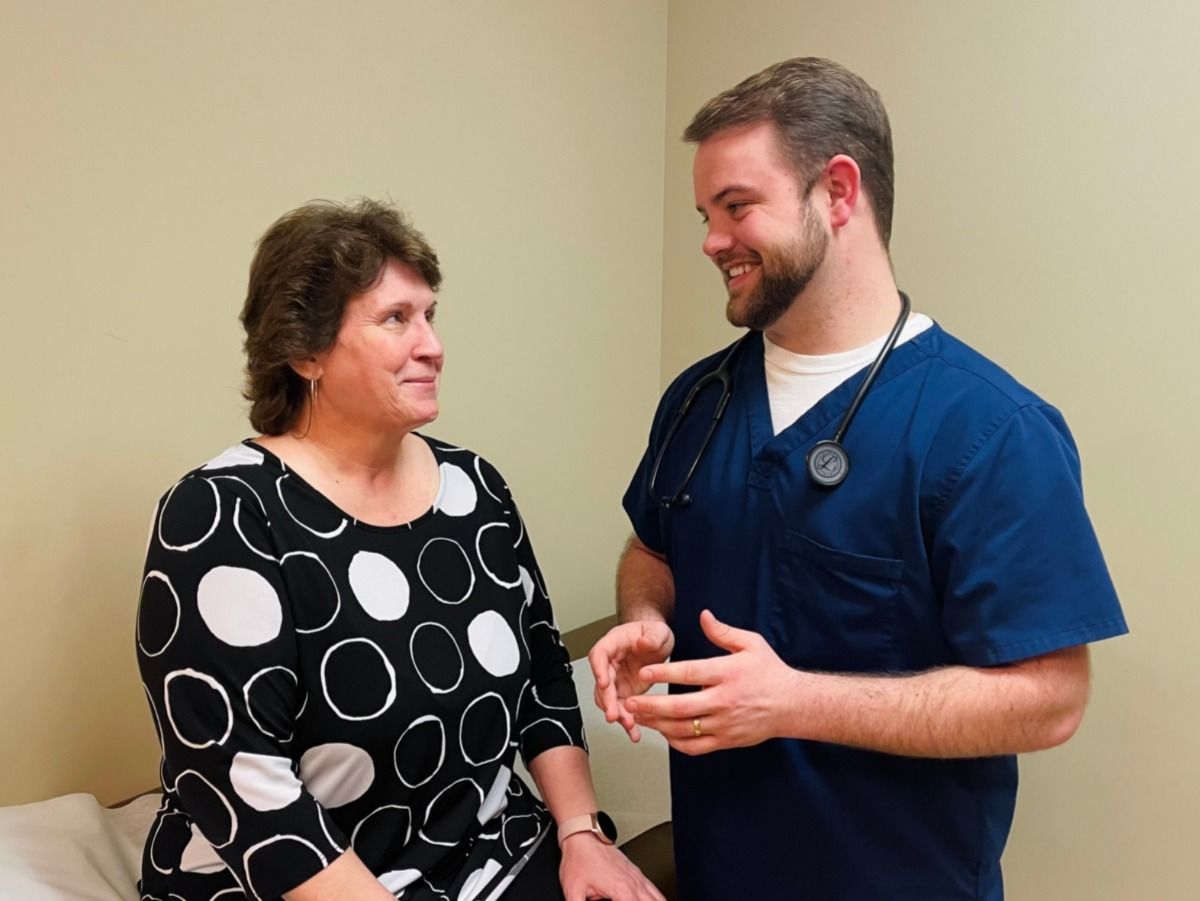
Recent studies have revealed an increase in incidence of colorectal cancer amongst people younger than age 50, which has led to updated screening recommendations. This is why Murfreesboro Medical Clinic (MMC) Gastroenterology is educating their patients and community about the importance of routine screenings. March is nationally recognized as Colorectal Cancer Awareness Month. The Gastroenterologists at MMC hopes to bring attention to recent developments in the field and to break stigmas associated with colorectal healthcare and colonoscopies. The United States Preventive Services Task Force now recommends that adults begin screening for colorectal cancer at age 45. Because of this new guideline, both private insurers and Medicare will soon be required to cover the costs of your colorectal cancer screening when performed by an in-network provider starting at age 45. In fact, most insurances already are. Screening with Colonoscopy Although there are many screenings that can help find colorectal cancer, MMC Gastroenterologist Brian D. Smith, M.D. says that none is better than a colonoscopy. “Early stages of colorectal cancer usually present with no symptoms. A colonoscopy is the only test to prevent colorectal cancer, with the unique ability to remove polyps before they turn into cancer,” said Dr. Smith. “It is the only screening test recommended at 10-year intervals, because it’s by far the best test at finding precancerous polyps.” With four gastroenterologists, four advanced practice providers and an in-house, accredited SurgiCenter, MMC is well-equipped to perform safe and reliable colonoscopies. Preparations have improved, and are generally easier to tolerate than in the past. The procedure is performed with the patient sedated, and generally there is no pain during or after the procedure. Most patients will feel well upon leaving the SurgiCenter, get back to a regular diet that day and resume regular activities, such as work, the day after. Breaking the Stigma According to the Center for Disease Control (CDC) , colorectal cancer is the third leading cause of cancer-related deaths in the U.S. The American Cancer Society estimates that there will be about 150,000 new cases of colorectal cancer in the U.S. in 2022, leading to an estimated 52,580 deaths. Even with these startling statistics, the CDC says that only about 7 out of 10 U.S. adults aged 50 to 75 are up-to-date with colorectal cancer screening. “My suspicion is that people do not want to have the test mostly out of embarrassment,” said MMC Gastroenterologist Robert Knox, M.D. “But talking to the patient directly will usually alleviate their angst about going thru the procedure. Knowing where you stand regarding your colon health is incredibly valuable.” To learn more about colonoscopies and to see if screening is recommended for you, please click here . If have questions or concerns about getting a colonoscopy, talk to your doctor. If you would like to schedule a colonoscopy, please click here or call 615-867-8070.

The department joins an elite group of practices across the country that have been recognized for their commitment to continuous quality improvement and a patient-centered approach to care. Murfreesboro Medical Clinic’s (MMC) OBGYN department, which provides the full spectrum in obstetrical and gynecological care to women in Middle Tennessee, has been recognized by the National Committee for Quality Assurance (NCQA) as a Patient-Centered Specialty Practice (PCSP). Following an intensive vetting process based on industry-leading best practices, the department was notified that it had achieved this status which recognizes its commitment to continuous quality improvement and a patient-centered approach to care. With this announcement, MMC OBGYN becomes not only the first obstetrical and gynecological practice, but the first specialty practice in the state of Tennessee to earn this prestigious recognition. “This is a huge accomplishment and one that we are all very proud of,” said Denise Flanagan, MMC’s Chief Operating Officer. “It demonstrates our physicians’ and staff’s commitment to excellence and the patients that we serve.” What is a Patient-Centered Specialty Practice? Practices that become recognized under Patient-Centered Specialty Practice Recognition have demonstrated commitment to patient-centered care and clinical quality through: streamlined referral processes and care coordination with referring clinicians, timely patient and caregiver-focused care management and continuous clinical quality. “NCQA Patient-Centered Specialty Practice Recognition distinguishes practices that communicate, collaborate and integrate care in ways that patients want and that improve quality,” said NCQA President Margaret E. O’Kane. “I commend the team at Murfreesboro Medical Clinic Obstetrics and Gynecology for its achievement, and for its commitment to continuous improvement.” Earning NCQA Patient-Centered Specialty Practice Recognition shows consumers, private payers and government agencies that the practice has undergone a rigorous review of its capabilities and is committed to sharing information and coordinating care. Recognition also signals to primary care practices that the specialty practice is ready to be an effective partner in caring for patients. “The OBGYN department has done an excellent job transforming their practice into a Patient Centered Specialty Practice,” said Collette Thomas, MMC’s Quality Coordinator. “The strain of the pandemic has not made this an easy process. Revising existing workflows and implementing new processes that ensure coordinated care took a great deal of teamwork and collaboration. I’m thrilled to see it all come together.” “I am very proud of this accomplishment,” added Jason Pollock, M.D. of MMC OBGYN. “In a year as trying as this one, these victories should be celebrated. It is not often you are apart of a group that is the ‘first and only.’ I’d like to thank our Office Manager Christy Kinslow and our Quality Coordinator Collette Thomas for their leadership navigating this accreditation process.” MMC’s OBGYN department joins a distinguished group of fewer than 400 other specialty care practices from across the United States that have also earned PCSP Recognition.
From its inception in 1949, the physicians and staff of Murfreesboro Medical Clinic have created a true healthcare community in Rutherford County, providing all patients with a holistic,multidisciplinary approach to everyday wellness. Drs. Carl Adams and S.C.Garrison founded Murfreesboro Medical Clinic with the lofty goal of providing convenient, quality care to all Rutherford County residents. Though the clinic has experienced a variety of changes and expansions throughout its 70 years of care, the physicians and staff of MMC have continued to pursue Adam’sand Garrison’s core values of care, compassion and community in every endeavor. Now in 2019, MMC remains a multispecialty, physician-owned medical group with over 80 physicians and 20 different departments who are still committed to offering patients both primary and specialty care within their community. Today, MMC has over 700 employees and five locations across Murfreesboro. “As our community continues to grow, it is imperative that its medical community grows as well to ensure that we have access to quality healthcare provided by excellent physicians instate-of-the-art medical facilities,” shares Joey Peay, Chief Executive Officer.“At Murfreesboro Medical Clinic, we remain committed to meeting those goals. It is my belief that Drs. Adams and Garrison would beam with a strong smile and a well-deserved sense of pride if they could see what MMC has become and how it continues to provide quality medical care to this community,” Peay continues. MMC is proud to celebrate its 70 years of caring for its patients and community.

Leadership at Murfreesboro Medical Clinic and SurgiCenter realized several years ago that genomics and precision medicine were the future of healthcare and would be invaluable in helping provide better, safer therapies By Nicholas Cote, D.O. Article via Healthcare Innovation As healthcare leaders look toward the future, most envision a clinical environment where providers are equipped and empowered to deliver personalized and precise care to their patients. Advances in genomic science over the past decade have provided insights that will enable organizations to transform the way they diagnose and treat both common and rare conditions. Yet this progress has been slow to arrive at the point of care. Hospitals, health systems and medical groups are striving to develop strategies that allow their clinicians to leverage this critical information to improve quality of care and patient satisfaction. Interestingly, ambulatory groups are among the leaders in adopting precision medicine, overtaking many larger organizations and academic centers, especially in pharmacogenomics (PGx). Because it delivers information about how well patients will metabolize specific medications based on their genetic profile, PGx has practical (and highly valuable) application across virtually all specialties. Impacting prescribing decisions in real time, PGx results help clinicians identify the most effective medication first, rather than relying on the traditional trial-and-error approach. In addition, these tests can flag if a drug might cause side effects (which impact how closely a patient follows the care plan) and even if it could prove unsafe or toxic. Leadership at Murfreesboro Medical Clinic and SurgiCenter (MMC) realized several years ago that genomics and precision medicine were the future of healthcare and would be invaluable in helping provide better, safer therapies. Providers began to order PGx tests when they felt the information would benefit their treatment decisions (and thereby their patients). Initial efforts centered on psychiatric and behavioral health medications (e.g., antidepressants and anti-anxiety drugs) and common cardiovascular treatments (e.g., statins, clopidogrel). Both providers and patients saw immediate value and were excited about the potential for expanded usage. Three barriers impeded MMC’s ability to scale its precision program, however: 1. The cost of testing. Payer policies around reimbursement are lagging and patients often are required the cover the cost. This proved to be an obstacle. While most patients intuitively recognized how valuable PGx information could be, they understandably balked at the added expense. Although prices have dropped dramatically in the past year or two, it was not so long ago that they ran into the thousands – well out of reach for the average patient. 2. Lack of understanding about how PGx factors into clinical decision making. Again, while the concept of PGx testing is easy to grasp, operational questions remained. Although most medical schools now include coursework on genomics, providers practicing today have varying degree of familiarity with this area of science. And they have a lot of questions such as: When should I order a PGx test? Does every patient need to have one? What happens if a patient’s PGx test indicates that she should change medications – but the alternative is not fully covered by insurance? 3. Lack of convenient – and understandable – access to PGx test results. To date, PGx test results are returned as a paper document or a scanned attachment in the medical record. Since results could not be saved as discreet data or integrated with other patient information, providers had to A) realize/remember the data was available somewhere in the record; B) leave their workflow and find it; and C) figure out what the test results meant in context of their patient’s condition. It was important to MMC’s leadership and care teams to achieve success with precision medicine, and so MMC proactively addressed each of these barriers. First, we reached out to a lab partner that specializes in PGx testing and asked if we could negotiate a pricing model to help our patients. The partner was accommodating and agreed on a cap for patients qualifying for financial assistance. Previously, we learned patients seemed to have a $100 threshold for out-of-pocket expenses and were able to stay within that price point. Next, we began to investigate technology partners that could help MMC bring the PGx results directly into the clinical workflow. Ultimately, we adopted a solution that ingests genomic data from the lab (and can handle additional labs as we expand) and integrates it with clinical information so providers see the complete picture within the patient context. Providers can access the PGx information with one click from their EHR, and from there can dive deeper into test results or link out to evidence-based materials if they want more information. And, of course, we are training providers and addressing operational issues on an ongoing basis. As the organization becomes more familiar with PGx, we are working out the processes, procedures, workflows and decision support to guide day-by-day precision medicine practices. Bringing the power of pharmacogenomics to the point of care has produced a multitude of benefits. · Patients are receiving better care. MMC has had patients diagnosed with depression, for instance, who have spent months working with their physician trying to come up with the best medication at the most appropriate dose. With ready access to genomic insights, providers can prescribe a more effective therapy much earlier in the treatment cycle. Less time is lost and the quality of the patient’s life is better. One patient messaged his physician through the portal saying MMC had “changed his life” through the simple PGx test. · Providers feel empowered. I like to say that having genomic data available makes us feel more “doctor-y.” Clinicians have been frustrated by having to practice trial-and-error medicine for so long. PGx test results, available within the patient context and connected to current knowledgebases, mean providers have a more complete picture. They can bring all their training and skills to bear when making clinical decisions. · MMC has differentiated itself within its service area. Patients in our region have many choices for healthcare: Nashville is just minutes away and other urban centers, like Atlanta, are within easy driving distance. Because there are many healthcare providers nearby, MMC is dedicated to leveraging all the talent and technology available to ensure our patients receive superior care. I like to say that, with precision medicine, we are on the bleeding edge, not just the cutting edge. We have had one patient tell us that the reason they chose us as their provider was our PGx program. It is not often that an innovation of this magnitude comes along. Placing critical genomic information directly into the hands of providers, right at the point of clinical decision making, represents one such breakthrough. MMC and its patients will continue to explore the value PGx can deliver – and look beyond to additional utilization of genomic insights in areas like disease risk identification (e.g., cardiovascular) and targeted therapies for select conditions (e.g., cancer). A primary care provider, Nicolas Cote, D.O., also serves as Chief Medical Information Officer and President of the Murfreesboro Medical Clinic and SurgiCenter in Tennessee.

Tennessee provider seeks to make genomic information easily available at the point of care Pittsburgh, PA and Chicago, IL – May 7, 2019 Allscripts Healthcare Solutions , Inc. (NASDAQ: MDRX) announced today that Murfreesboro Medical Clinic and SurgiCenter (MMC) has selected 2bPrecise ™ to support its precision medicine strategy, beginning with pharmacogenomics (PGx) at the point of care. The only multispecialty, physician-owned clinic in Rutherford County, TN, MMC became an advocate of genomics and PGx several years ago, with providers ordering molecular tests for select patients to support diagnostic and treatment decisions. They found it difficult to apply genomic insights to medical decisions during patient encounters, however, because test results were not integrated with clinical information or easily available within the EHR workflow. “We’re deeply committed to providing exceptional care to members of our community,”says Nicholas Cote, D.O. , CMIO and President of the Board for MMC. “We recognize that using science to drive medical treatment is infinitely more effective than trial and error. The 2bPrecise platform will help equip our clinicians to identify the best medications for individual patients, achieving better results faster and with fewer side effects. Not only is this good medicine, but it greatly enhances the patient experience as well.”
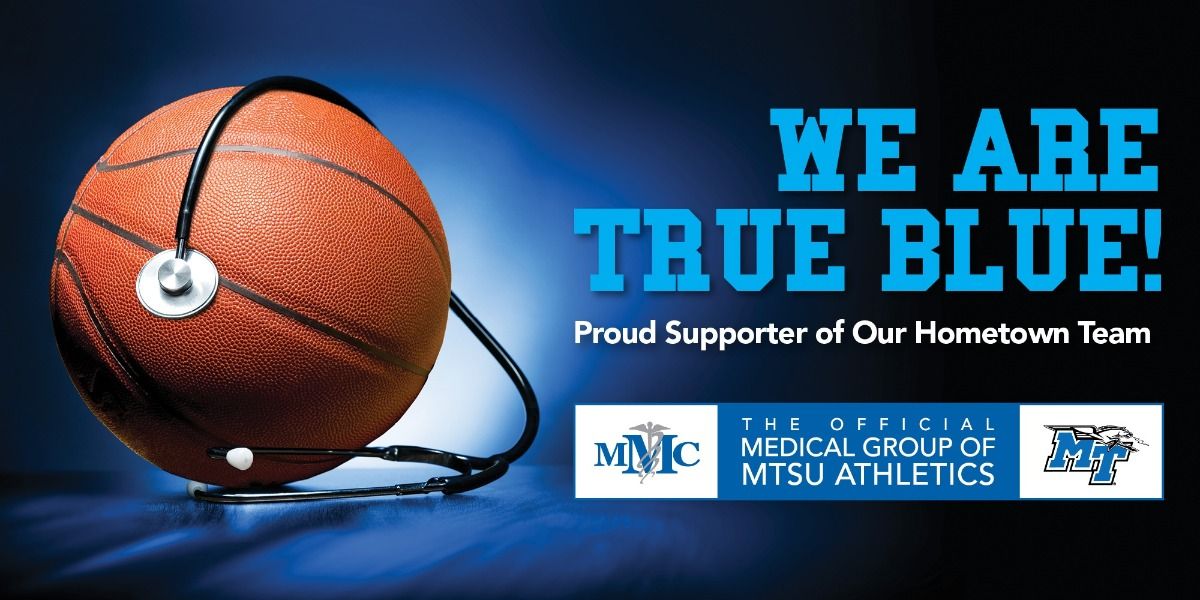
Murfreesboro Medical Clinic & SurgiCenter (MMC) is #TRUEBLUE! The multi-specialty healthcare facility located in the heart of Tennessee entered into a continued partnership with Middle Tennessee State University’s (MTSU) Athletics Department in July 2018. MMC has been a long-time supporter of MTSU sports like football and basketball. However, this new partnership expands the reach beyond athletics; including academics, health services, student services and general campus outreach. Chief Executive Officer, Joey Peay states, “As a lifelong resident of Rutherford County and a MTSU graduate, I have seen the impact that this growing university has had on Murfreesboro, Rutherford County and Middle Tennessee. As MMC continues to grow into a regional provider of medical care,it made sense to develop a partnership with MTSU. This will allow us to promote health matters to a wide ranging group of people while helping MTSU grow as well.” One of the ways MMC plans to serve MTSU’s campus is through the new installation of hand sanitizing stations on MTSU’s campus. MMC is also partnering with MTSU to be involved in campus-wide events such as Meet Murfreesboro, MTSU Fan Day and multiple departmental health fairs. Currently, MMC works with MTSU Student Health Services to provide quality care for students who may be needing further medical assistance or a specialist’s attention, and plans to continue providing that service and care. “We are thrilled to enhance our already great relationship with Murfreesboro Medical Clinic. They are widely regarded as the number one health care provider in our region and this partnership strengthens both of our brands” said MTSU Director of Athletics, Chris Massaro. Murfreesboro Medical Clinic has served the Murfreesboro community for nearly 70 years and is pleased to see this service continue with the faculty, staff and students of MTSU. Murfreesboro Medical Clinic is a multi-specialty, physician owned practice, committed to offering the patient both primary and specialty care within their community. For more information about Murfreesboro Medical Clinic & SurgiCenter, please visit mmclinic.com, or call 615-893-4480.

Murfreesboro Medical Clinic’s Neurology CNA, Libby Stark, Receives MSCertification Libby Stark, a CNA in Murfreesboro Medical Clinic’sNeurology department, is now a Certified Multiple Sclerosis (MS) Specialist.After completing the examination covering the fundamentals of MS,multidisciplinary MS care and patient empowerment, Libby is proud to be one of MMC’sthree Certified MS specialists. Libby joins Joy Derwenskus, D.O., M.S., andJanet Brown, FNP-BC, MSCN. Murfreesboro Medical Clinic’s (MMC) Neurology department isrecognized as a Partner in MS Care. This formal recognition honors thedepartment’s commitment to providing exceptional, coordinated MS care; andcontinuing partnership with the Society to address the challenges of peopleaffected by MS. Libby joined MMC Neurology in February of 2017 and has sincebeen passionately serving the community’s MS population alongside Dr. JoyDerwenskus. She has been a great asset to the MMC staff, and this newcertification will continue to provide her with more tools and education toprovide multiple sclerosis patients with the highest quality of care. MMC Neurologist, Dr. Joy Derwenskusshares, "Not only is Libby bright and thoughtful, but she also takes thetime to answer questions. Almost everyday a patient will comment to me about Libby's exceptional care. She seems to put patients with a chronicneurologic condition at ease. Thiscertification only adds to the expertise available to patients living withmultiple sclerosis at MMC." The MMC Neurology Department is proud to be one of the twoMS Partners in Care Clinics in Middle Tennessee. For more information about howto connect with the Neurology department at MMC, please visit mmclinic.com, orcall (615) 867-8090 today. Your health is our mission.
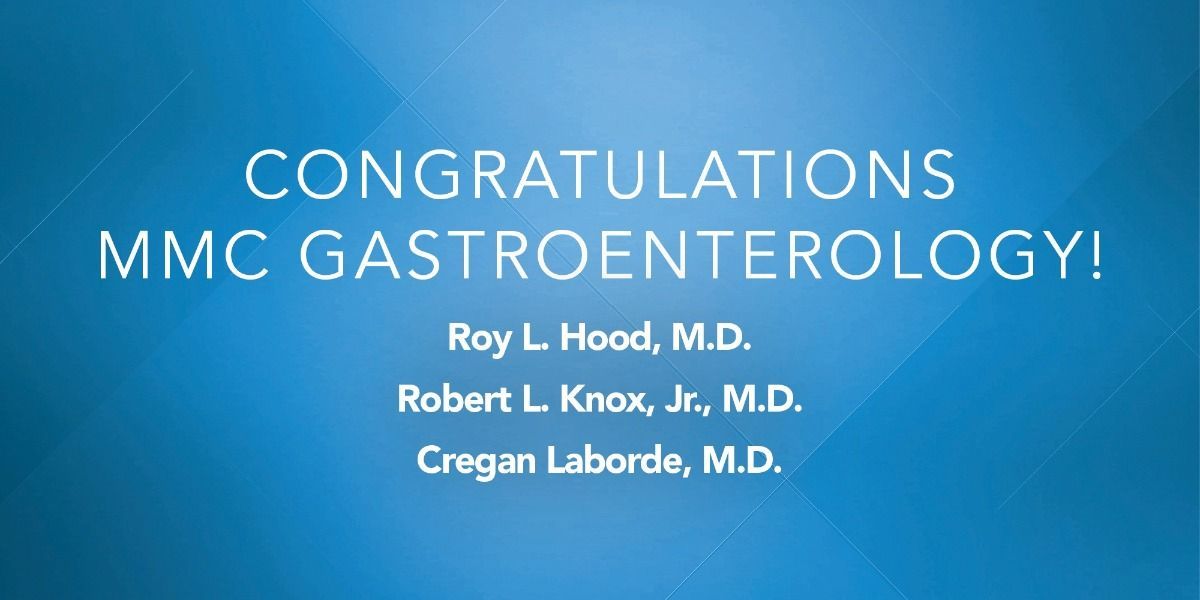
Murfreesboro Medical Clinic’s Gastroenterology department has received impressive results regarding their 2017 adenoma detection rate (ADR) for colonoscopy screenings. What is an Adenoma Detection Rate (ADR)? ADR is the widely accepted national benchmark on quality for colonoscopy screenings. An adenoma is a tumor that is benign and can be removed during a colonoscopy, but without detection it can grow and turn malignant. A physician’s ADR is related to the number of individuals undergoing a colonoscopy screening who have one or more adenomas detected. A high ADR represents a higher rate of detection, which correlates to a lower risk of colon cancer. The MMC Gastroenterology department received an ADR of 41.25% in 2017, exceeding the national average colonoscopy ADR of 20% for females and 30% for males. These impressive results prove that MMC’s Gastroenterologists continue to provide exceptional service to the Murfreesboro community. MMC Gastroenterologist, Dr. Cregan Laborde, notes, “Meeting national quality targets is essential for colon cancer prevention and reduction of cancer mortality. The MMC Gastroenterology team is committed to delivering high quality patient care and is excited about exceeding quality performance benchmarks.” Regular colonoscopy screenings should begin at the age of 50, and should be repeated every ten years if there are no adenomas detected. If abnormalities or cancerous cells are detected, a physician may recommend more frequent screenings. To learn more about MMCGastroenterology, please contact us at 615-867-8040 or visit mmclinic.com. Your health is our mission.

Melissa Fulghum, F.N.P. of MMC’s Endocrinology Department completes herBoard Certification in Advanced Diabetes Management. Melissa Fulghum,F.N.P joined Murfreesboro Medical Clinic in the Endocrinology department in2017. Melissa hasrecently completed her Board Certification by the American Association ofDiabetes Educators, making her Board Certified in Advanced Diabetes Management. In addition tocongratulating Melissa on this accomplishment, the Clinic recognizes hercontinued interest and passion in the care of the diabetic patient. This includes new treatmentoptions, such as the newest technology in insulin delivery systems and glucosemonitoring. Melissa works closely withDr. James K. Rone, who shares, “Diabetes is epidemic in Tennessee, inthe US, and worldwide (8.5% of all human adults, according to the World HealthOrganization). Its management demands thoughtful picking and choosing, mixingand matching from a panoply of pharmaceuticals, and hi-tech devices devoted tometabolic monitoring and drug administration. It has long been recognized thatspecialty physicians teamed with advanced-practice nurses perform these complexfunctions best. I congratulate Melissa, and value beyond words hercontributions to MMC’s diabetology toolkit.” Murfreesboro Medical Clinicis proud to have providers, like Melissa Fulghum, F.N.P., committed to itsmission of providing quality healthcare to the community. To schedule an appointmentwith MMC Endocrinology, visit mmclinic.com or call 615-867-8130. Your healthis our mission.
Murfreesboro MedicalClinic is proud to announce eighteen physicians were chosen as top doctors inthe 2018 Nashville Top Doctors issue of Nashville Lifestyle Magazine. NashvilleLifestyle partners with Castle Connolly Medical Ltd. to publish a list oftop, local medical professionals, nominated by their peers. MMC is honored tohave eighteen doctors on this list. These physicians include: Tammy H.Adams, M.D. – Pediatrics David A. Beaird, M.D. – GeneralSurgery Lee Bigham, M.D. – Pediatrics Elizabeth S. Bray, M.D. –Internal Medicine James T. Carter, M.D. – GeneralSurgery Marcie S. Castleberry, M.D. -Pediatrics Brad S. Chesney, M.D. –Obstetrics & Gynecology Jeremy B. Harrison, M.D. –Pediatrics Michael S.Herlevic, M.D. – Internal Medicine Steve Humphrey, M.D. – Pediatrics Derek K. Johnson, M.D. –Pediatrics Marcus A. Owen, M.D. -Rheumatology Utpal Patel,M.D. – Internal Medicine Jason W. Pollock, M.D. –Obstetrics & Gynecology Brent Rosser, M.D. – Pediatrics Kimberly B. Shannon, M.D. –Internal Medicine Gregory M. Taylor, M.D. –Obstetrics & Gynecology Kelly G. Williams, M.D. –Obstetrics & Gynecology Murfreesboro Medical Clinic physicians have been recognizedin this issue nearly every year. The physicians receiving this recognition makeup numerous practices at MMC, including Pediatrics, General Surgery, InternalMedicine, Obstetrics & Gynecology, and Rheumatology. Chief Executive Officer, Joey Peay, shares, “While we knowthe physicians of Murfreesboro Medical Clinic are exceptional, it is truly anhonor when a third party recognizes this as well. Congratulations to thehonorees.” Castle Connolly Medicals Ltd. was created with the missionto find the best healthcare in the nation and share this information withconsumers. To receive this honor, physicians must be nominated by their peersand then go through an extensive screening process. This process is based on avariety of different factors, including their medical education and training,hospital appointments, professional reputation, and disciplinary histories. Theonly way for a physician to be honored on the Top Doctor list is to be one ofthe best in their field and to be nominated by a colleague. Physicians areneither permitted to nominate themselves nor pay in order to be included in thelist. Murfreesboro MedicalClinic is a multi-specialty, physician owned practice, committed to offeringthe patient both primary and specialty care within their community. For more information about MMC, please visit mmclinic.com, or call615-893-4480.
